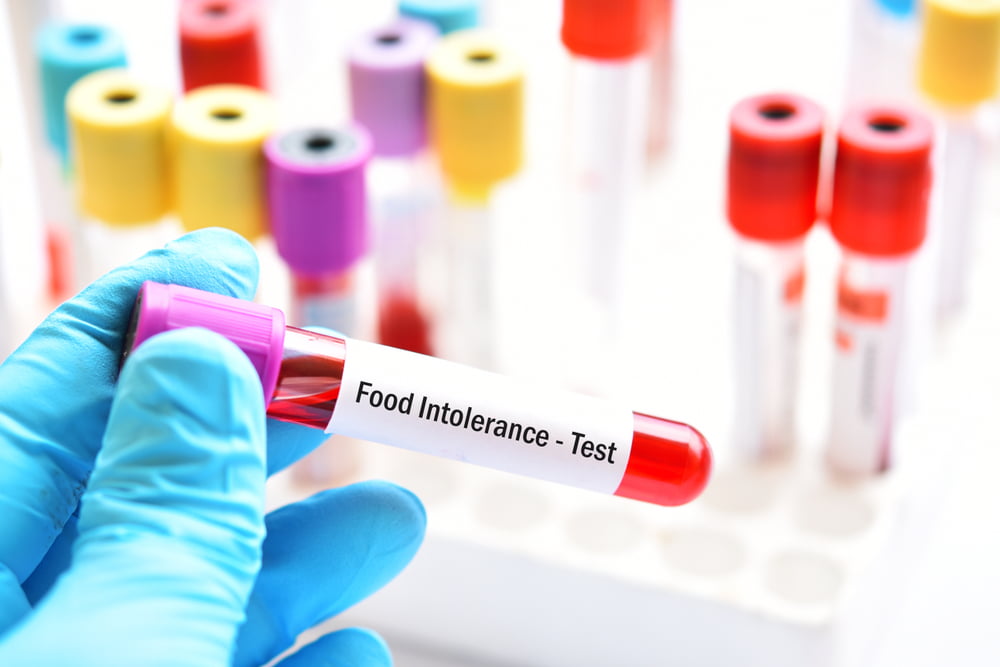Are you stuck in a rut of feeling bad, experiencing regular digestive distress, and looking for answers? Our functional medicine doctors have the expertise to uncover the source of your health problems and whether food sensitivities are partly to blame. Here are a few things to know about how we use food sensitivity testing to help patients improve their gut health:
Food Sensitivity versus Food Allergy
 These two terms do not mean the same thing. A food allergy can be life-threatening, with reactions such as tongue swelling, difficulty swallowing or breathing, dizziness, itching, and hives. For example, a peanut or tree nut allergy can be determined through skin patches or blood tests. On the other hand, food sensitivity refers to the digestive system’s inability to process certain foods, and these symptoms can include bloating, constipation, diarrhea, abdominal and joint pain, brain fog, headaches, persistent rashes, and more. While not necessarily life-threatening, food sensitivities can worsen existing gut issues such as IBS and significantly lower your quality of life.
These two terms do not mean the same thing. A food allergy can be life-threatening, with reactions such as tongue swelling, difficulty swallowing or breathing, dizziness, itching, and hives. For example, a peanut or tree nut allergy can be determined through skin patches or blood tests. On the other hand, food sensitivity refers to the digestive system’s inability to process certain foods, and these symptoms can include bloating, constipation, diarrhea, abdominal and joint pain, brain fog, headaches, persistent rashes, and more. While not necessarily life-threatening, food sensitivities can worsen existing gut issues such as IBS and significantly lower your quality of life.
Common Food Sensitivities
You are most likely familiar with lactose intolerance or Celiac disease, but those are plenty of other culprits found in many foods we consume on a daily basis. Common food sensitivities can include any of the following:
- Gluten (found in bread, pasta, cereals, crackers, beer, etc.)
- Lactose (found in dairy products)
- Caffeine (found in coffee, tea, energy drinks, and soda)
- Histamine (found in fermented foods, citrus and dried fruits, cured meats, and aged cheeses)
- Sulfites (found in wine, pickled foods, apple cider, potato chips, and condiments)
- Fructose (found in many fruits and vegetables, honey, agave, soda, or anything with high fructose corn syrup)
Food Sensitivity Testing
It is not as easy to diagnose a food sensitivity as it can be a food allergy. At-home food sensitivity tests are often expensive and are not recommended to provide accurate results, so it is vital to seek professional guidance when looking for treatment options. So, what should you do if you think you might have a food sensitivity? Here are two specific actions to take right away:
1. Start a food journal.
It is important to write down what foods you eat and how they make you feel as soon as you begin to notice negative symptoms. That way, any patterns or routines can be brought to light, making it easier to determine potential food sensitivities. Try to be as detailed as possible and include drinks and snacks.
2. Make an appointment with a functional medicine practitioner.
 The next step is to schedule a consultation with a doctor. At Elite Personalized Medicine, we utilize thorough functional medical testing, including food sensitivity tests, which look for the presence of certain IgG antibodies, as well as other blood tests and elimination diets, to help us find out what is triggering your immune responses.
The next step is to schedule a consultation with a doctor. At Elite Personalized Medicine, we utilize thorough functional medical testing, including food sensitivity tests, which look for the presence of certain IgG antibodies, as well as other blood tests and elimination diets, to help us find out what is triggering your immune responses.
As you can see, many foods can wreak havoc on the digestive and immune systems, and we are dedicated to finding solutions for anyone struggling with gut issues. Now that you know about food sensitivity testing, learn more about how to improve your gut health!











